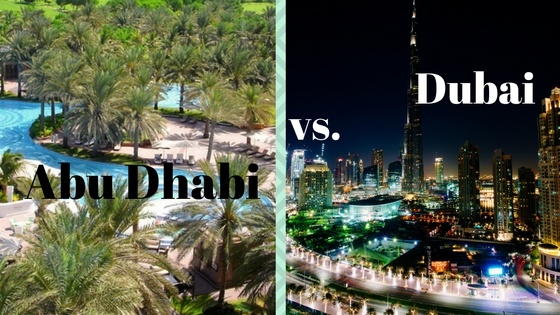When it comes to the choice of Abu Dhabi vs Dubai, there’s years of experience and information to help you make your choice. These emirates in the UAE have long been popular destinations for British expats.
Both are dynamic melting pots of diverse cultures which nevertheless remain rooted in Islamic tradition. Particularly important, both offer expats abundant opportunities for work and play.
Dubai’s extravagance has traditionally drawn more expats, but the UAE capital Abu Dhabi is fast catching up. So what’s the real difference between Abu Dhabi and Dubai? We’ve put these two long standing rivals head to head to help you choose which Emirate you would most like to live in.
Lifestyle
Dubai is a non-stop, glitzy city that clamours for attention. It has everything through extravagant shopping (the Dubai Mall, with its 8.3-metre-high aquarium and underwater zoo holds the title of the biggest mall in the world) fast cars, gastronomic delights and sleek skyscrapers. Dubai fiercely guards its reputation as the biggest and the best. It’s pure hedonism – and it’s thrilling – but for some this lifestyle can be lacking depth, unsustainable and just plain exhausting.
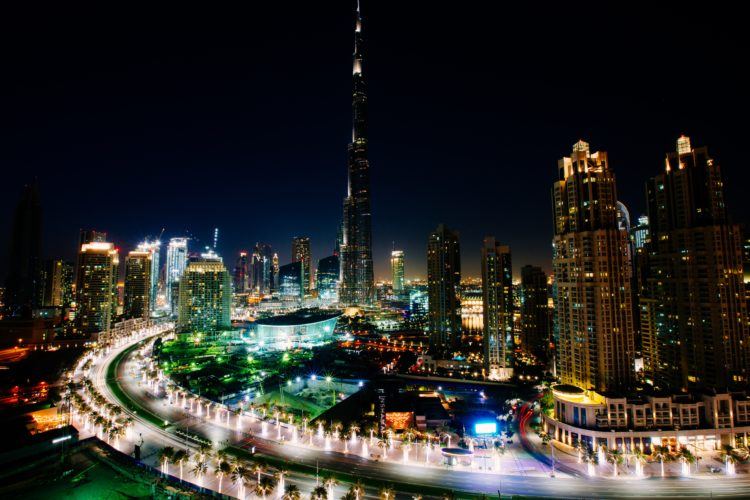
Abu Dhabi or Dubai?
If you’re looking for a more relaxing life after choosing Abu Dhabi or Dubai, this is when the lush natural mangroves, green public spaces and sense of community in Abu Dhabi come to the fore. The pace of life here is a little more chilled, the people more genuine. The city is quietly but continually evolving and offers a bustling leisure scene with great gourmet experiences, luxury hotels, shopping malls and nightclubs whilst retaining old world charm and more focus on culture and quality of life.
The Job Market
Expats looking to work in Abu Dhabi are often surprised that it is not always as lucrative an opportunity as they might expect. Employment options are more limited than in Dubai, and crazily high salaries are the reserve of specialists in technical sectors or management positions. We’d advise you to look for suitable positions before you make the move from the UK.
The working week in Dubai varies between 40 and 48 hours, and the city’s ethos is work hard, play hard. The spectrum of jobs available is wider than Abu Dhabi, with expat salaries being well paid. In neither city is personal income taxed, so the possibility exists to rack up some serious savings.
Abu Dhabi vs Dubai: Prices
Rental Costs
It used to be the case that accommodation was cheaper in Abu Dhabi, but with the city becoming a more desirable place to live, prices have rocketed and have now overtaken Dubai.
The monthly rent for an unfurnished 2-bedroom apartment currently weighs in at anything from 11,650 – 18,000 AED (£2,500 – £4,000).
A similar property in Dubai will cost around 8,300 – 12,500 AED (£1,800 – £2,700) with parking and usually comes with use of a pool and/or gym as part of the package.
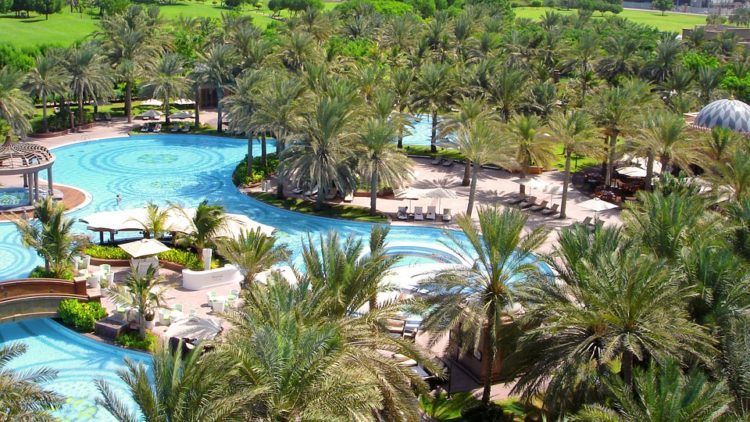
Abu Dhabi
Transport
Dubai sprawls for miles and the traffic is chaos, which can make commuting a chore. Being smaller and less populated means Abu Dhabi is quicker and less stressful to navigate. In both cities running a car is cheap.
When buying a car you can expect to pay up to 50% lower than in the UK, and petrol is about a quarter of the price back home with Abu Dhabi giving the best deal overall.
Food and Drink
A single expat living in Dubai can spend anything between AED 250 and AED 1,000 (£50 – £220) on groceries per week.
Eating out doesn’t have to be costly, but it often is. A meal with alcohol at a decent restaurant can set you back up to AED 500 (£110) per person. Prices are a little easier to swallow in Abu Dhabi, with an equivalent dinner setting you back around AED 350 (£75). Groceries come at a similar cost to those in Dubai.
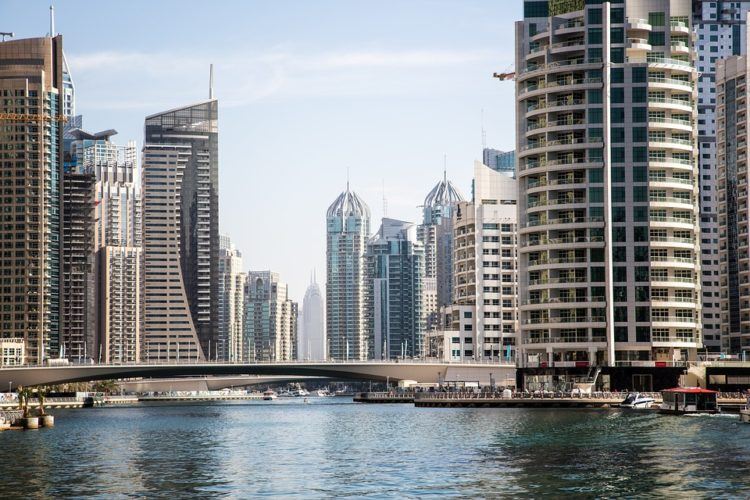
The Dubai Marina
Abu Dhabi or Dubai for Kids?
Dubai delights the little ones with amusement parks, zoos, the mall and the beach, but these distractions are often short-lived and green space and a natural environment is lacking. Schooling here is expensive, so most expats opt for employment that includes school fees as part of the deal.
There are plenty of good international schools to choose from, many of which follow UK curriculums. The better the school the higher the fees and the harder it is to get into, so parents are advised to plan well in advance.
Abu Dhabi has pools, parks and great beaches aplenty to entertain young kids, as well as nearby mangroves and islands filled with wildlife. Most expats with families choose to settle here rather than Dubai as there is a strong social and support network for parents.
There are some excellent English speaking schools, but fewer than Dubai and place shortages are common. Like Dubai fees can be very expensive – and waiting lists long – depending on the quality of the school.
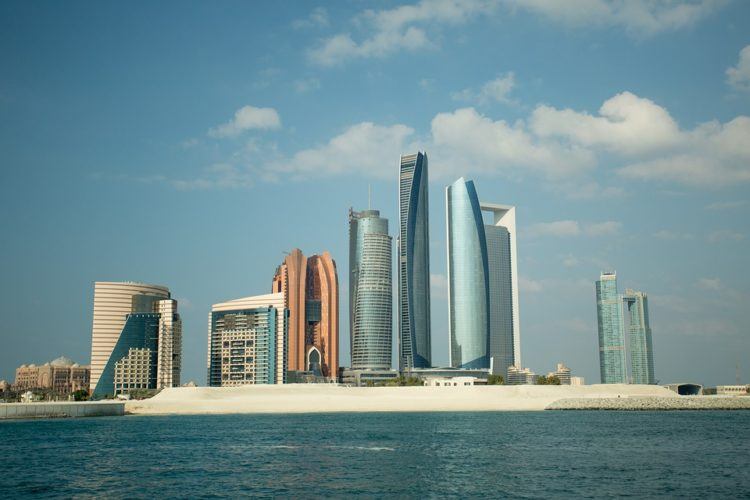
Abu Dhabi
Conclusion
Despite their many similarities, it’s important to appreciate the difference between Abu Dhabi and Dubai.
Dubai’s reputation comes at a price – it is an expensive place to live – and whilst Abu Dhabi isn’t cheap either, it will for the most part be a little kinder to your wallet.
However deciding on Abu Dhabi or Dubai for British expats is not something that should be determined based on money alone. It also depends on personal tastes, needs and preferences. Family life and community may be richer in Abu Dhabi, whilst young singles will thrive on the glamour and nightlife of Dubai. Both cities have their charms, so why not try them both before settling in?
Which is your favorite in the battle of Abu Dhabi vs Dubai?

